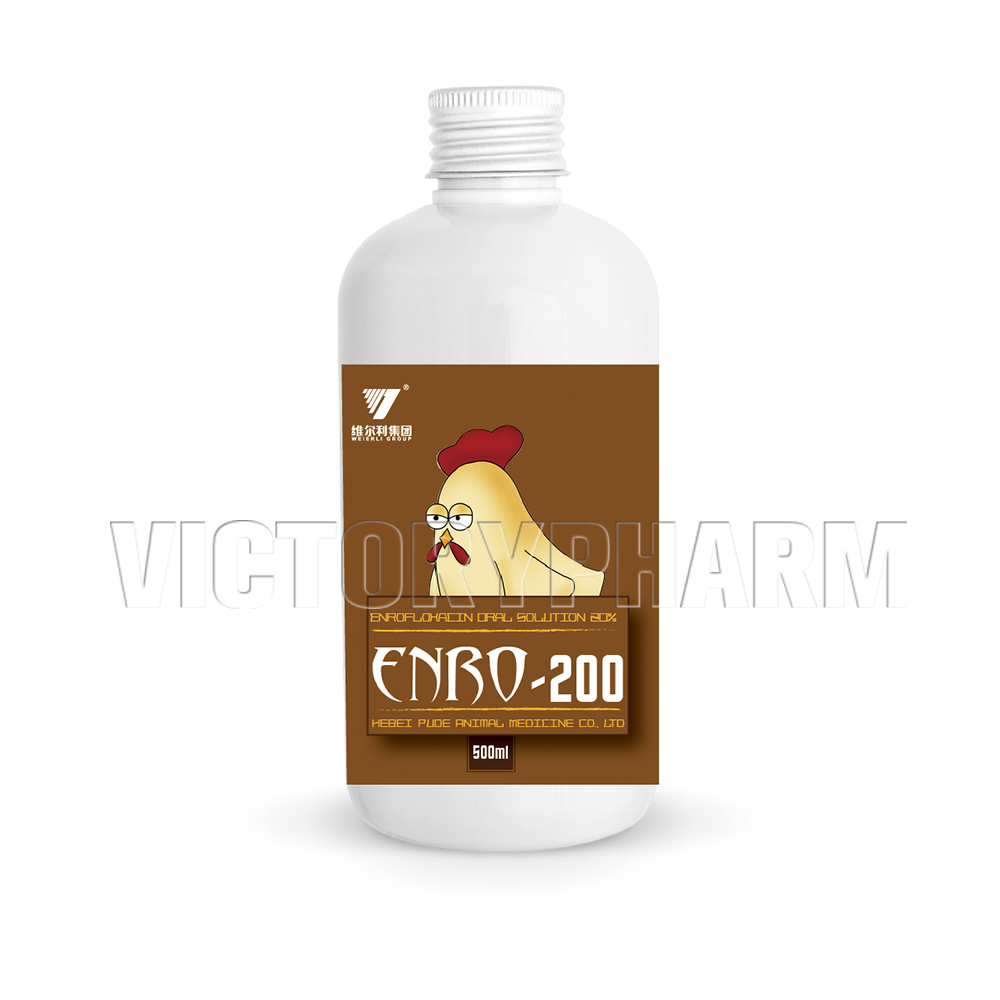+86 311 8926 5710
+86 311 8926 5710
Enrofloxacin Oral Solution 20%
Composition
Each L contains enrofloxacin 200g

Description
Enrofloxacin belongs to the group of quinolones and acts bactericidal against mainly gram-negative bacteria like E. coli, Haemophilus, Mycoplasma and Salmonella spp
Indication
Treatment of bacterial disease caused by micro-organisms susceptible to Enrofloxacin.
Poutry: Colibacillosis, Mycoplasmosis, Salmonellosis,Infectious Coryza
Dosage & Administration
Poutry:
Asminister orally the diluent for 3 days after diluting it at rate of 25ml/100L drinking water to be enrofloxacin 50mg/1L water
(For Mycoplasmosis: administer for 5 days)
Storage and expiry date
Store in an airtight container at dry room temperature (1 to 30o C) protected from light.
24 months from date of manufacture
Withdrawal period
10 days
Packing Unit
100ml, 250ml, 500ml, 1000ml
Precaution
A. Do not administer to the following animal.
1. Do not use for animals with shock and hypersensitive response to this drug.
2. Do not administer to animals with liver injury or renal impairment
B. Side effect
1. In the case of administration to growing animal it may bring about joints abnormality (claudication, pain, cartilage failure).
2. Gastrointestinal problems (vomiting, loss of appetite, diarrhea, abdominal pain, etc.) may occur rarely.
3. Central nervous system disorder (dizziness, anxiety, headache, subduction, ataxia, seizures and etc.) may occur.
4. hypersensitive reaction, crystal urine may occur.
C. General Precaution
1. Do not use for animals with shock and hypersensitive response to this drug.
2. Do not administer to animals with liver injury or renal impairment
A. Upon over dosage (10 over dosage (10 times or more) abnormality such as vomiting and lowering feed intake and etc. may occur.
D. Interaction
1. Do not use in combination with macrolide, tetracycline phosphorus antibiotics.
2. The absorption rate in vivo may be decreased at the time of mixed administration with formulations containing magnesium, aluminum, and calcium ions.
3. Upon administration with theophylline and caffeine it may increase blood concentration.
4. Probenecid may increase the concentration in the blood by preventing discharge of this product trough renal tubule.
5. Upon administration with Cyclosporine it may exacerbate nephrotoxicity of Cyclosporine.
6, Upon concomitant use with nonsteroidal anti-inflammatory drugs, it may occur convulsions rarely
